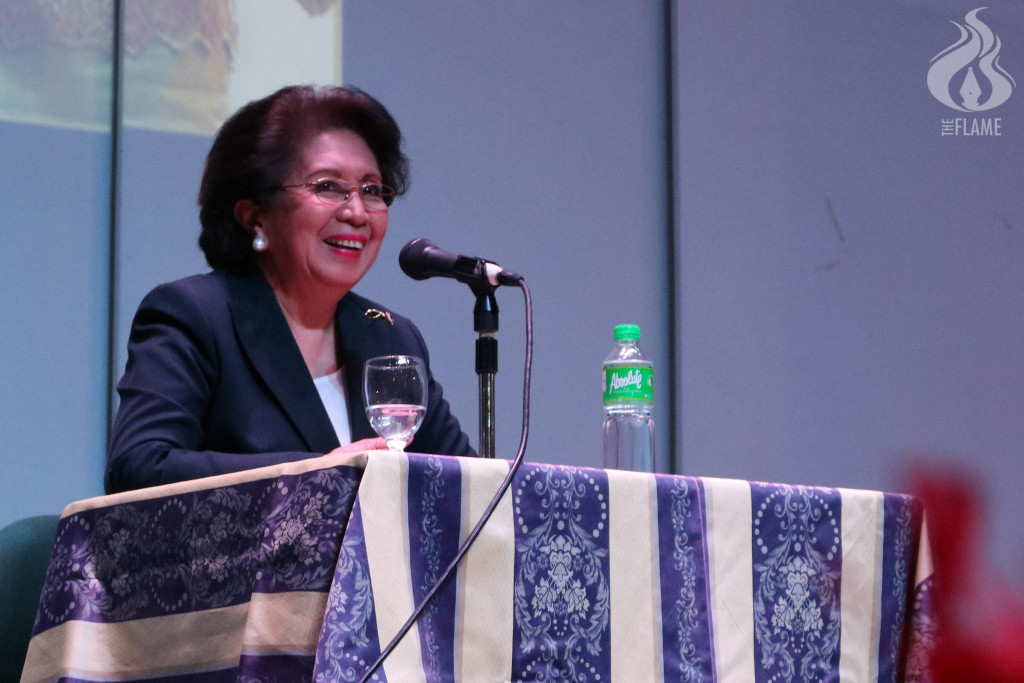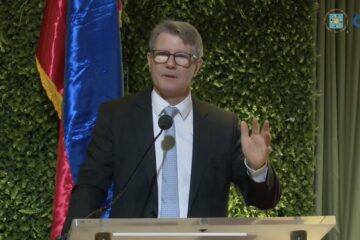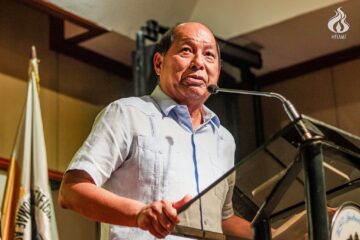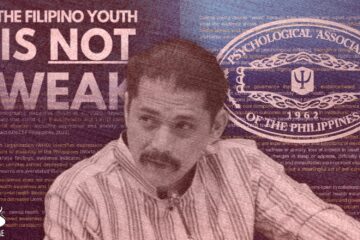
PREVENTION IS the only way for Filipinos to eradicate corruption—for now.
This was the message of Ombudsman Conchita Carpio Morales to the Artlets in the 49th St. Thomas More Lecture held March 16 at the Medicine Auditorium.
Through “preventive corruption initiatives,” Filipinos may hope for a better governance and nation, Morales said in her lecture titled Leading the Charge: The Ombudsman Roadmap to Fight Corruption Head-On.
“These (initiatives) are not only the gains of the Ombudsman, but the gains of the Filipinos united under one solemn constitution,” she said. “As there is yet no absolute cure to corruption, prevention appears to be the only antidote against [it].”
Morales, a Ramon Magsaysay awardee for Public Service in 2016, reiterated that the people play an important role in the surveillance of the services and actions of government officials.
“The long and narrow path […] is not easy. […] The Ombudsman cannot do it without the Filipino people to continue to uphold the rule of law [so] that it enforces accountability, promotes transparency, and instills integrity,” Morales said.
The Office of the Ombudsman introduced the programs “Integrity, Transparency, and Accountability in Public Service” and “eSALN: Electronic Filing of Statement of Assets, Liabilities, and Net Worth” in 2011 and 2013, respectively, to prevent corruption in the government and “make it easier for public officials to do good things.”
Morales, who served as associate justice of the Supreme Court from 2002 to 2011, will be ending her term as Ombudsman in 2018.
The annual lecture held in honor of the Faculty of Arts and Letters’ patron saint, St. Thomas More, was attended by the officials and students of the Faculty. F ANGELIQUE ANNE F. TORRES



